On ROI’s Into the Corner Office podcast, we have interviewed over 200 leading middle-market CEOs from companies across industries, and the advice and wisdom they have shared with us is unparalleled. We are excited to share some of these insights with you in a new form!
Many of our guests are entrepreneurs, and hearing companies’ origin stories is one of the most interesting parts of hosting ROI’s Into the Corner Office Podcast! There is always more behind the scenes than the met need or the innovative product, however, and that’s why we love to hear the story behind the business on the Into the Corner Office podcast.
Most entrepreneurs start their businesses by recognizing a need or a problem and finding a solution–sometimes the problem is general, sometimes very specific, but the companies that survive are the ones that fulfill a need and do it well. We have had all kinds of entrepreneurs from every industry, but some of the most unique and personal are those of our guests who have started businesses in the medical industry, particularly if the company was inspired by a personal experience.
Know Better, Do Better
Michael O’Neil, founder and CEO of GetWellNetwork, got the idea of GetWellNetwork while undergoing cancer treatment. “I was laying in a hospital bed at Johns Hopkins Hospital in Baltimore for 11 days,” Michael says, “And I was staring at this 25-year-old television on the wall. Every morning this young kid would come in and ask me for eight dollars to turn the TV on, [and] I’m thinking to myself, ‘I just came from a world where at my fingertips I have access to all of the information, the people, the data that I need to make very good decisions about really important and complicated things. And now here I am thrust into the health care world as a cancer patient. And I feel like I don’t have access to anything.”
Bianca Padilla, founder and CEO of Carewell, was inspired by the other side of illness: being a caregiver. After her grandmother had surgery, “It was really challenging. It was [difficult], having to care for someone, having to figure out what products they needed, making sure she got the right nutrition and was taking all the medicines. I went online and looked for resources and looked for which products we should be buying, and I was just completely shocked that there was nothing for family caregivers. There wasn’t anything like a BabyCenter or guides or blogs–like there are for newborns–for the aging population.”
Julie Tupler, in her time as a nurse and as an exercise instructor, realized there was a major gap in medical care that wasn’t addressing Diastasis Recti, a common “condition that can cause serious side effects,” and that some kinds of exercise can actually make it worse. She decided to be a solution and founded Diastasis Rehab to address diastasis recti, which can cause many conditions from back pain and pelvic floor weakness to digestive issues and umbilical hernias. While diastasis recti is commonly associated with pregnancy, “it can affect anyone,” and Julie wanted to give people the tools to improve their condition without surgery.
More Than A Dream
It takes more than just a dream to turn an idea into a business, of course, and all three of these leaders have built successful companies on the foundation of their ideas.
GetWellNetwork “exists to help when health care is front and center in someone’s life. GetWellNetwork is there to help you take an active role in your health journey–we fundamentally believe and now we have measured that a more active, educated, involved patient is a better patient and the outcomes get better.” And they are doing it to scale: today, GetWellNetwork is “touching about 12 million people, patients and families a year with [their] software. [They] are working in over six hundred organizations across the United States, in the Middle East, Australia, a little bit in Ireland, and Canada. And [they] are working alongside health care providers to help them implement strategies and technologies and change management to really put patients and families in the center of the care process.”
Support is Key
As Bianca was trying to help care for her grandmother, she realized that there were very few places to find medical supplies, even fewer to find them affordably and none with any kind of support. Carewell changes that. “People need that guidance and they want to feel that support and that they’re doing the right thing…[they’re] caring for somebody who [thye] love so much, [they] want to make sure [they’re] making the right decision.” Carewell’s customer care team is there to support their customers every step of the way. “It’s really nice to be able to pick up the phone and say, hey, this is the issue I’m having. Please make a recommendation to me.” Because caregiving can often be emotional and difficult, Carewell is “very, very careful with who [they] hire. You know, you’ve got to be not only, you know, great customer service, but you’ve got to be a highly empathetic individual.”
Julie is, of course, not dealing with caregivers but with the patients themselves, and her goal is to help people heal themselves to prevent further issues. Her statistics show that “in six weeks [the Tupler Technique] program can make a diastasis recti–by following all four steps–fifty-five percent smaller. And this is without surgery.” The key–as with GetWellNetwork and Carewell–is support. The program “does much better with support. So, [Diastasis Rehab] created an online program. There’s no termination date. There are weekly videos, there are weekly tips, and there’s a blog to reach out to others. And then [Julie does] weekly live webinars where [participants] get to ask questions. When [people] have the support they do, they do much better.”
If you are an entrepreneur whose business is growing and you need help building a quality team that you can trust, ROI’s Four Step Solution can help!
We highly recommend listening to these interviews in their entirety because these short snippets simply do not do them justice. You can find the full archive of Into the Corner Office podcast episodes here.

